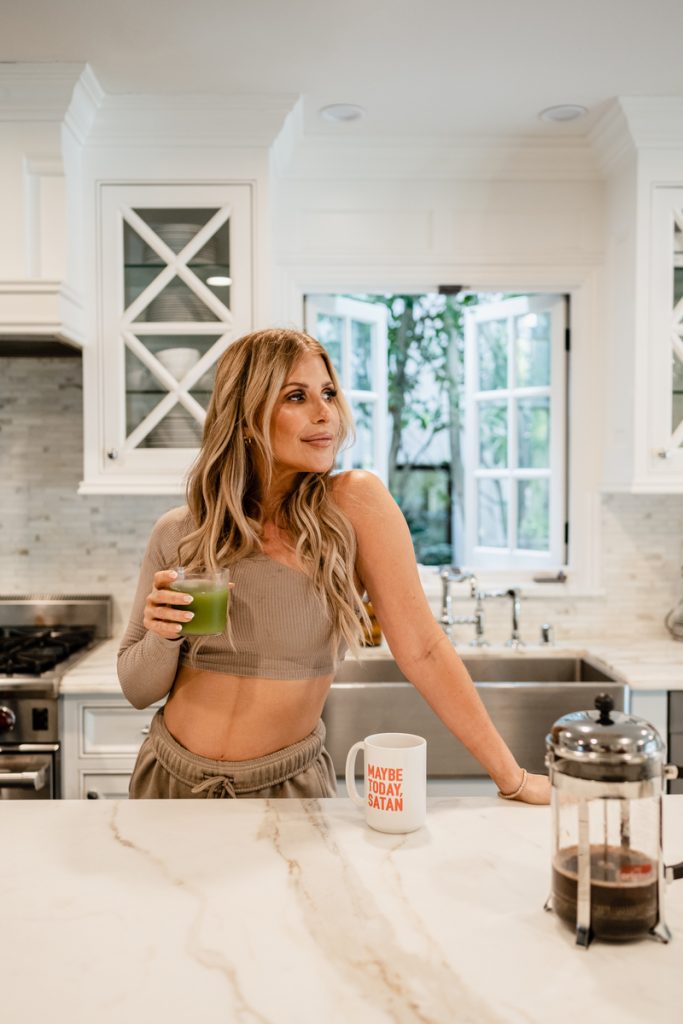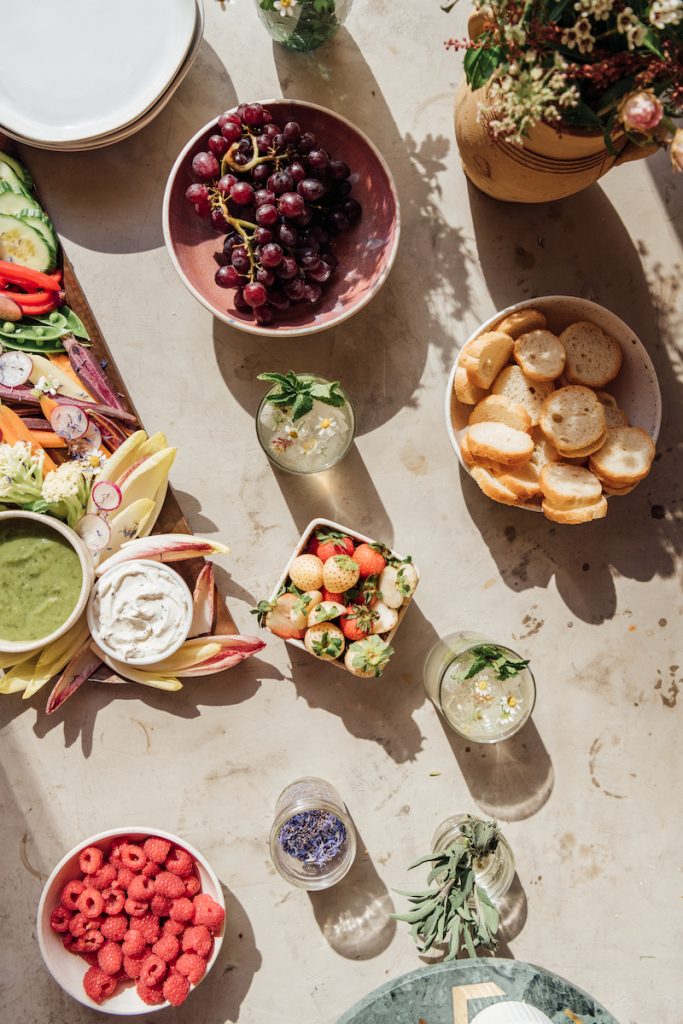It’s hard to argue against the benefits of following healthy habits. Punctuating our lives with routines makes it easy to do the things that keep us feeling strong and supported. Habits help us stay grounded, centered, and committed to our goals. If you’ve asked yourself the ever-elusive question how to stick to a routine? You’re in good company—and you’ve come to the right place for game-changing answers.
Jud Brewer, MD, Ph.D., has spent 20 years diving deep into the science behind habit change. As a neuroscientist, addiction psychiatrist, and the New York Times best-selling author of Unwinding Anxiety, he blends passion with practice, helping individuals create meaningful, lasting change in their lives for the better lives.
Ahead, Dr. Brewer shares insights on the importance of forming healthy habits, the #1 secret to keeping them, and why willpower is perhaps the greatest myth in mental health. A healthier, happier life awaits.
Feature image by Michelle Nash.

What are the benefits of forming and sticking to healthy habits?
Influencers and wellness advocates alike appear to know the secret to feeling their best. “That girl” videos abound, taking followers through a morning, evening, or an entire day in the life composed of healthy meals, supportive workouts, and centering mindfulness practices. Even if you don’t have the resources or time to greet the morning on your yoga mat, the good news is that a healthy routine is deeply personal and looks different for everyone. And when it comes down to it, most of life revolves around habits.
The majority of our waking hours are structured by habits, says Dr. Brewer, and with healthy habits in place, we can intentionally design richer, fuller days. “Habits in general help free up our time to learn new things,” he says. “Adopting healthy habits such as eating well, exercising, and getting enough sleep all have long-term health consequences and help us live happier, healthier lives.”
Why can it be so hard to make positive changes in our lives?
It’s a widely-known truth that inertia can feel like an impossible force to work against. Although they may keep us stuck, it’s often much easier to go about our lives practicing the same routines that prevent us from growing and moving in the direction we’d rather be headed. Whether good or bad, “most of us have habits that have been around for a long time,” notes Dr. Brewer. As for the go-to strategies we’ve long believed will help us change, Dr. Brewer says they don’t align with the way our brains actually work.
He cites willpower as a key, misguided culprit. “When we spend our time trying to use willpower, it depletes our energy and takes us away from strategies that could be more helpful.”
So, what actually leads to change? “Habits are formed through reward-based learning which is based on positive and negative reinforcement,” he says. In theory, ditching our bad habits and adopting healthy routines comes down to a simple, universal truth: We want to do more of what makes us feel good and less of what doesn’t. Full stop.

Let’s break that down further. What’s an effective strategy for forming healthy habits?
So if willpower doesn’t work, and the goal is to follow what feels good, how do we get there? The answer, thankfully, isn’t found in beating ourselves up for falling off the wagon. Instead? Dr. Brewer chalks it up to curiosity. “Curiosity helps us stay in the present moment in a nonjudgmental way. The only way to break a habit is to see how unhelpful it is right now, and curiosity helps us explore these old habits.”
If, for example, you suspect you might be drinking too much, Dr. Brewer encourages exploring “how rewarding or unrewarding those behaviors are with curiosity.” What does it feel like in your body to be hungover? (Answer: likely terrible.)
“Curiosity,” according to Dr. Brewer, “helps us tap into our brains to become disenchanted with these old habits, so we can then break them. Curiosity itself also feels better than many of our old bad habits. That’s why I think of it as a superpower,” he asserts.

How do we get back on track if we drift away from a routine or practice?
The proverbial wagon we alluded to above? It’s true that we can’t be 100 percent perfect all the time, and we’ll inevitably drift away from our routines when life gets in the way. But that doesn’t mean you can’t simply start fresh. Again, Dr. Brewer attributes awareness and curiosity as ways of returning to supportive habits. Ask yourself the following:
- What do I get when I drift away from my healthy habits?
- What do I get when I’m following them?
“Remembering what it feels like to have a healthy habit can help restart the process,” says Dr. Brewer. “For example, if you’ve been exercising but then stopped, you can remember what it feels like when you’re in shape.”
Are you sleeping better? Do you have more energy throughout the day? This strategy can be applied to any routine you want to return to. Whether it’s healthy eating, better sleep hygiene, journaling, or any practice that feels good to you.

Below, Dr. Brewer Shares His Top 3 Most Effective Tips for Forming and Sticking to a Healthy Routine
Step 1: Map out the healthy habit that you want to develop.
All habits have three elements: a trigger, a behavior, and a result/reward.
- TRIGGER is what starts the habit
- BEHAVIOR is the habit itself
- RESULT/REWARD is how you feel after the behavior
I’ve designed a free habit mapper to help simplify the process and explain each element in more detail.
Step 2: Ask yourself: “What am I getting from this?”
We need to give our brains new information to learn how our healthy habits are helping us. By paying attention to the results of your habits in the present moment, you can jolt your brain out of autopilot and see and feel exactly how rewarding the habit is for you right now.
Step 3: Savor your victories.
Each time you complete a workout or eat healthy for a day, think about how it feels. For most of us, it feels really good. It’s important to take this in so your brain can lay down this new memory. This process of savoring the moment helps us see the value of our new healthy habits.




